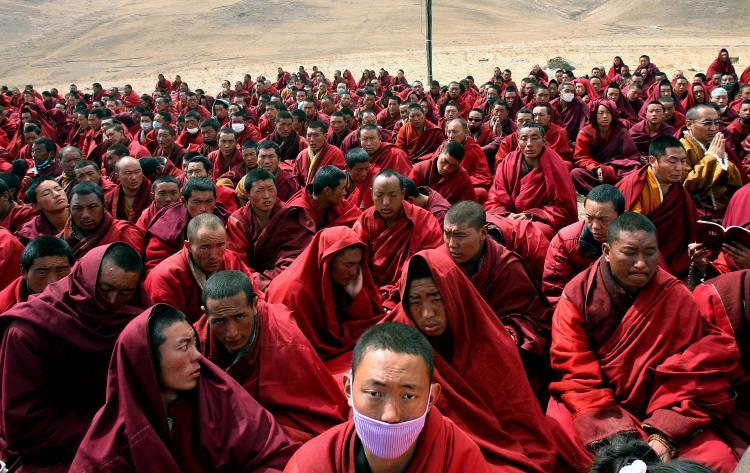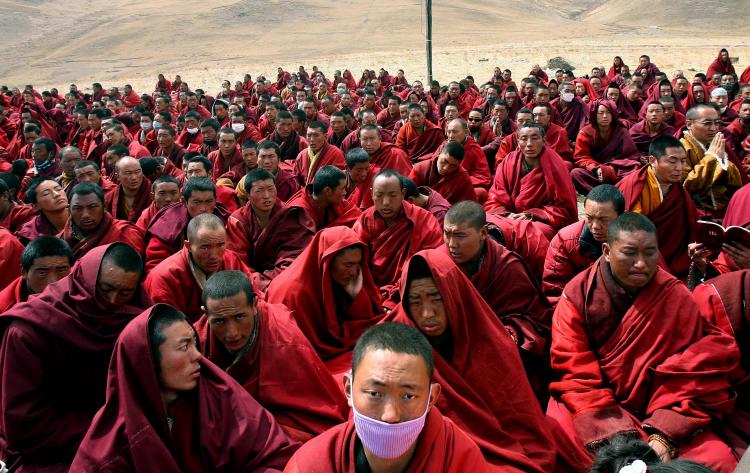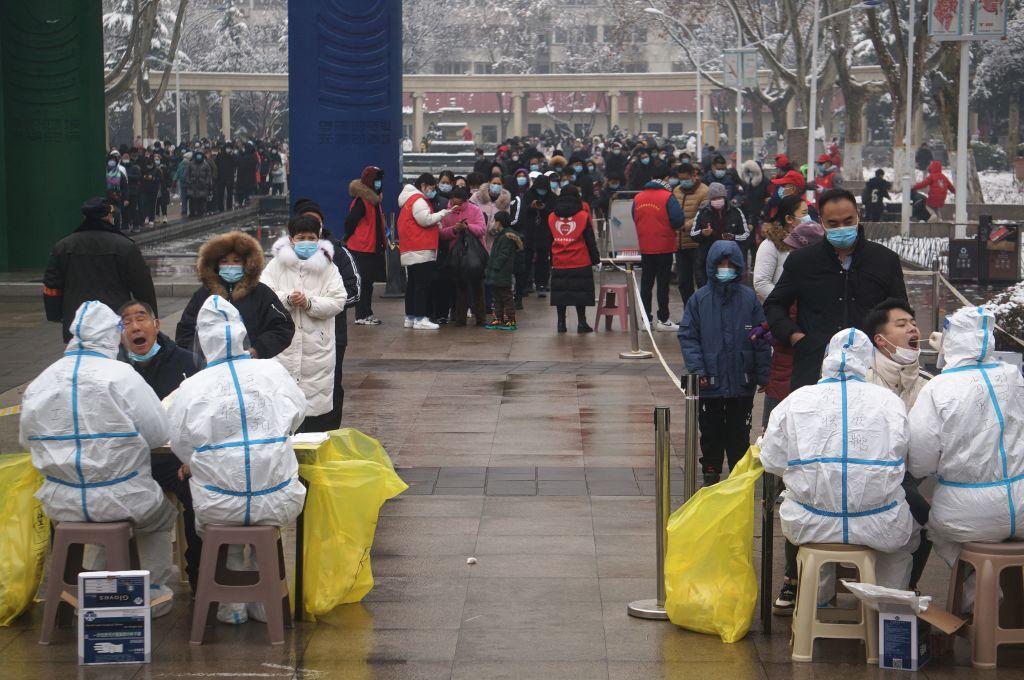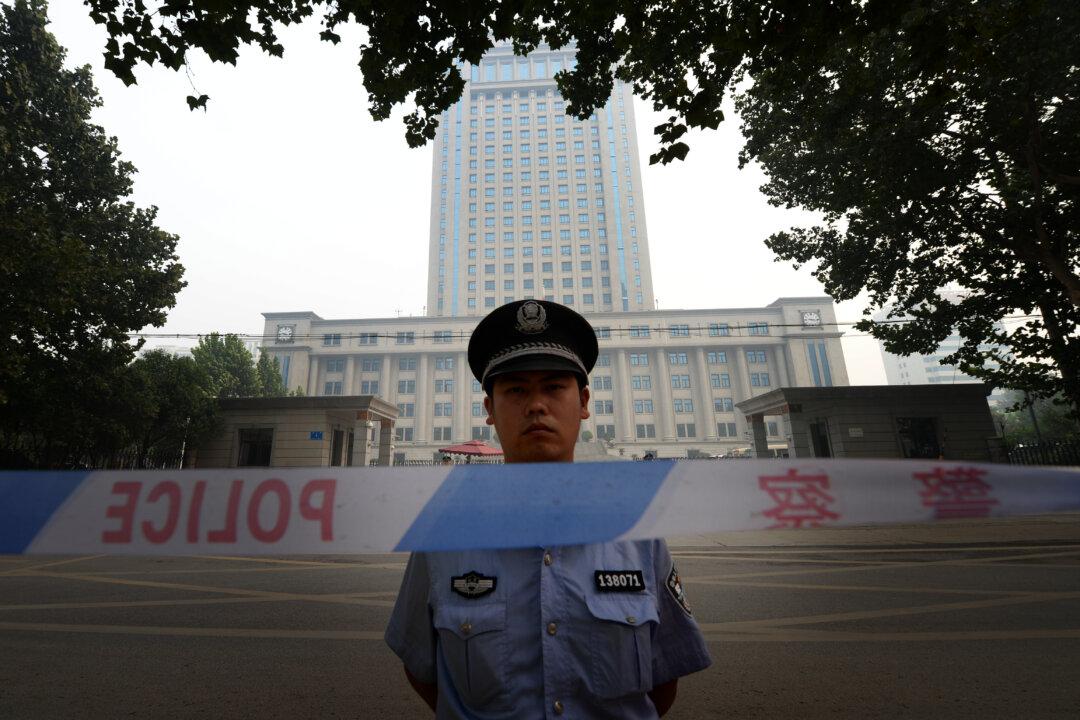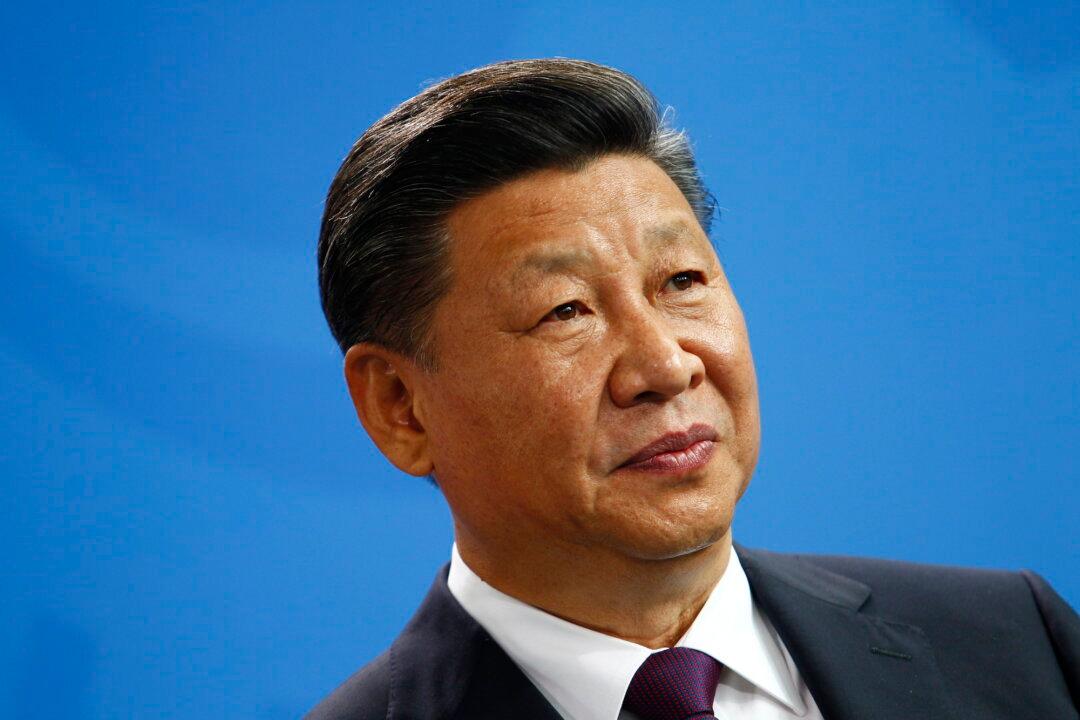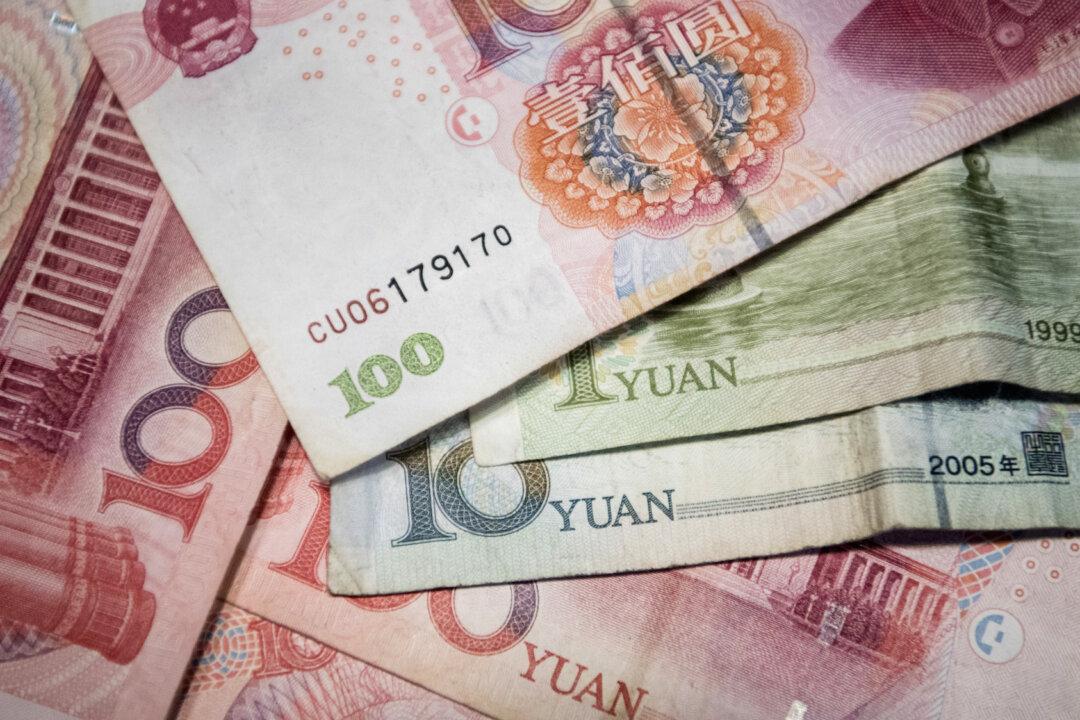Tibet Independence Activists Could be Shot in Earthquake Zone
A soldier has told The Epoch Times that Tibetan independence activists in the quake area could be shot.
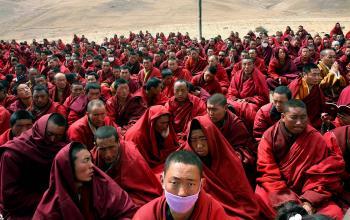
Tibetan monks gather outside their destroyed monastery in Jiegu, Yushu county, in China's northwestern province of Qinghai on April 20. AFP/Getty Images
|Updated:
